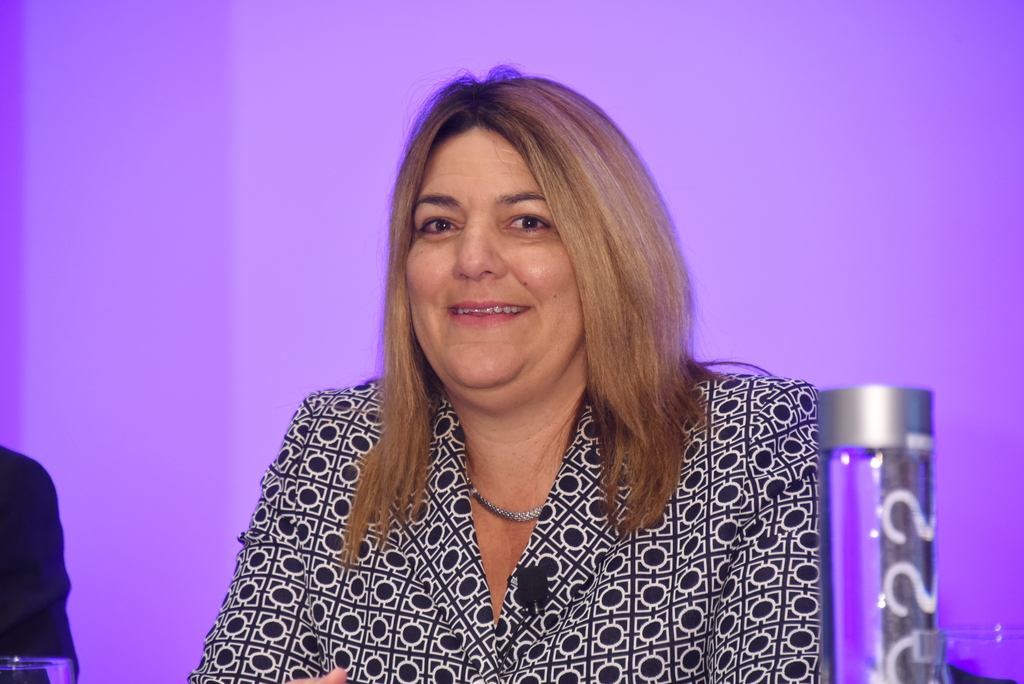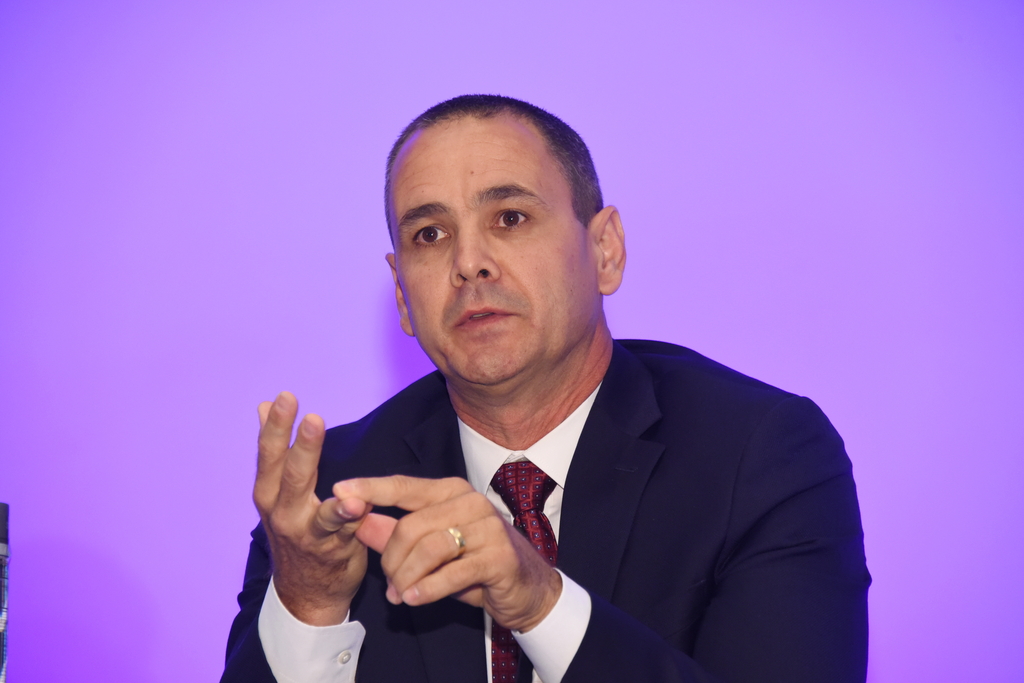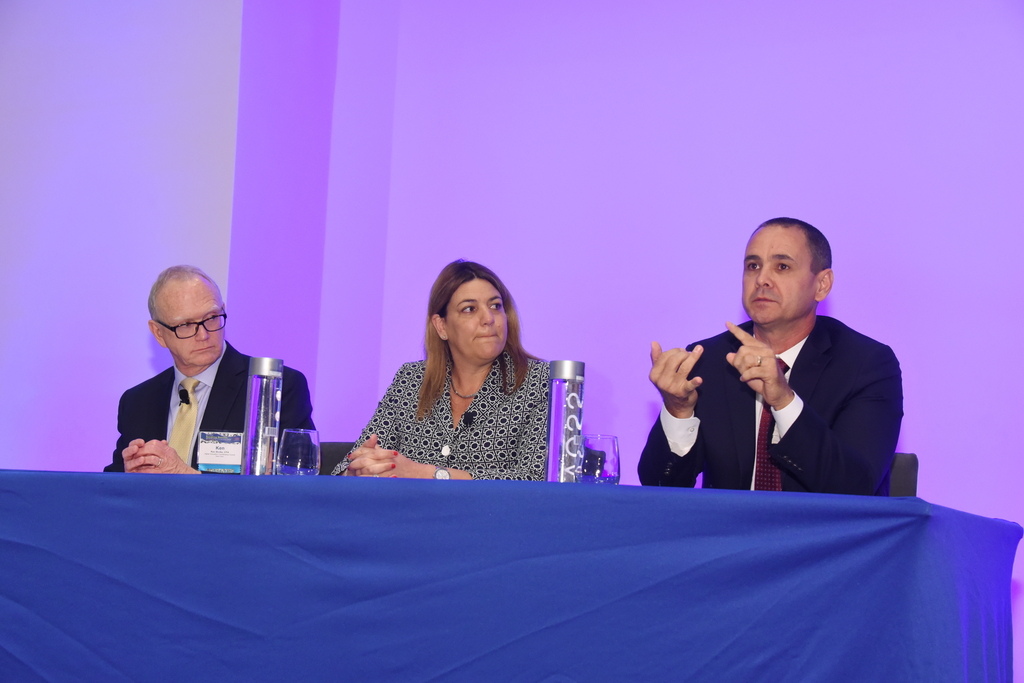Ken Burke empathizes with the challenges faced by non-traditional students seeking a college degree.
“When you’re 30 years old, that’s over a third of your life since the last time you were in an education environment,” said Burke, Clerk of the Circuit Court in Pinellas County and Vice Chair of Florida’s Higher Education Coordinating Council (HECC). “If I had to take a college math course at 30 years old with my last course being 12 years before, I would not be able to succeed without a lot of help.”
Burke and two of his fellow HECC members — Florida College System Chancellor Madeline Pumariega and State Board of Education Vice Chair Andy Tuck — recently took part in a panel discussion focused on the different ways Florida’s business, government, philanthropic, and educational communities have come together to provide that help for all the state’s students.
The panel was titled “Florida’s New Postsecondary Attainment Goal” and took place during the 2017 Florida College Access and Success Summit on May 10. The discussion was moderated by Marlene Spalten, president and CEO of the Community Foundation of Tampa Bay, who praised HECC’s adoption of an attainment goal.
“It’s so important for those of us who have local college access networks because it amplifies our voice to know that we have people across the state working together for this,” Spalten said referring to LEAP, the Hillsborough County-based local college access network (LCAN). “You providing that leadership toward the goal is gratifying, and I know it will help us be more successful.”

Ken Burke
Last fall, HECC adopted a postsecondary attainment goal for the state that calls for 55% of all Floridians ages 25 to 64 to hold a degree or postsecondary certificate by the year 2025. Currently, only 47% of Floridians ages 25 to 64 have a postsecondary degree or credential. The HECC includes 11 members representing higher ed leadership, and other appointees and serves as an advisory board to the governor and state legislature on issues impacting higher education.
“By 2025, 64% of jobs will require education beyond high school,” Burke said. “We are dedicated to making Florida economically strong.”
Pumariega noted that Florida is in a unique position since about 1,100 people arrive each day looking to make the Sunshine State their home.
“Other states look at their attainment level and it stays much more stable because they look at their K-12, college, and university pipeline,” Pumariega said. “We had to go deep on understanding who was coming to our state, what type of postsecondary credential did they have, what was the age group?”
She added that the council considered two major factors during the process of adopting its goal.

Madeline Pumariega
“We wanted to make sure that if we grow attainment levels in Florida, we grow them in areas where there’s a demand and students can earn a job as soon as they complete their degree or credential,” Pumariega said. “And secondly, we’re not in the business of leaving any county behind. It’s easy to say, ‘We’re going to focus on Orlando, Hillsborough, Miami-Dade, Palm Beach, and Broward.’ If you can turn the corner in those five counties, we’ve met our goal. That isn’t the way we’re going about what we’re doing.”
Tuck, a lifelong Highlands County resident and Central Florida citrus grower for more than 20 years, spoke emphatically about the need to improve college access in rural counties like the one in which he lives. Tuck specifically spoke out against “generational leadership” he believes limits the opportunities of people who live in rural areas.
“When the school district and county government are your two largest employers, you don’t really have opportunity there,” Tuck said about the lack of economic development in rural counties. “You have underprivileged students and minority students that unfortunately don’t have the opportunities your more well-to-do students do.”

Andy Tuck
Tuck also said that rural counties as a whole would benefit from an infusion of fresh, college-educated blood.
“By bringing more college degrees to a rural county, you start to wash out some of that generational leadership we’ve had for so long, and that’s exciting to me,” he said. “I was one of those students who wasn’t part of that inner circle. We’ll have a new group of leaders with fresh ideas, opportunities for the entire county, and a lot more opportunities for economic development.”
To listen to the full HECC panel from the 2017 Florida College Access and Success Summit, click here.

